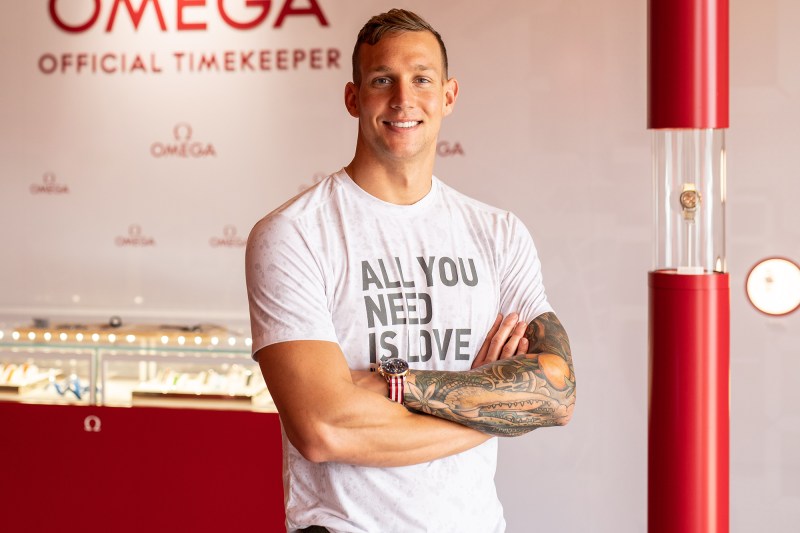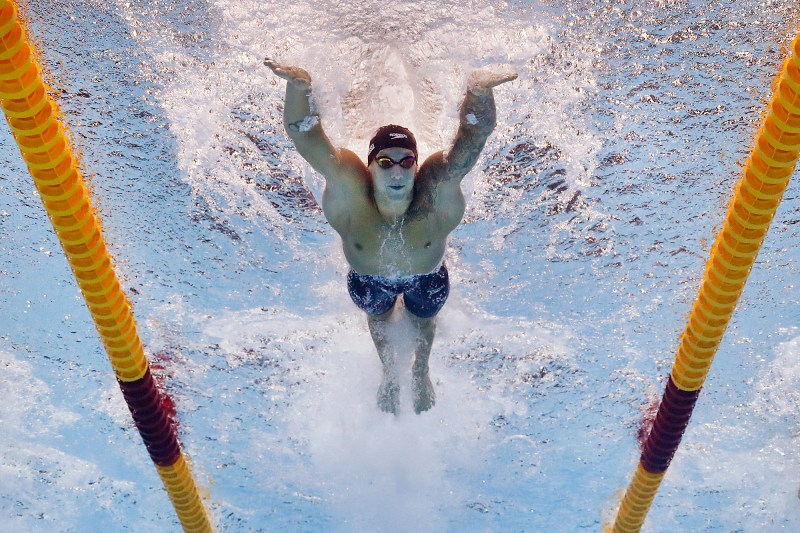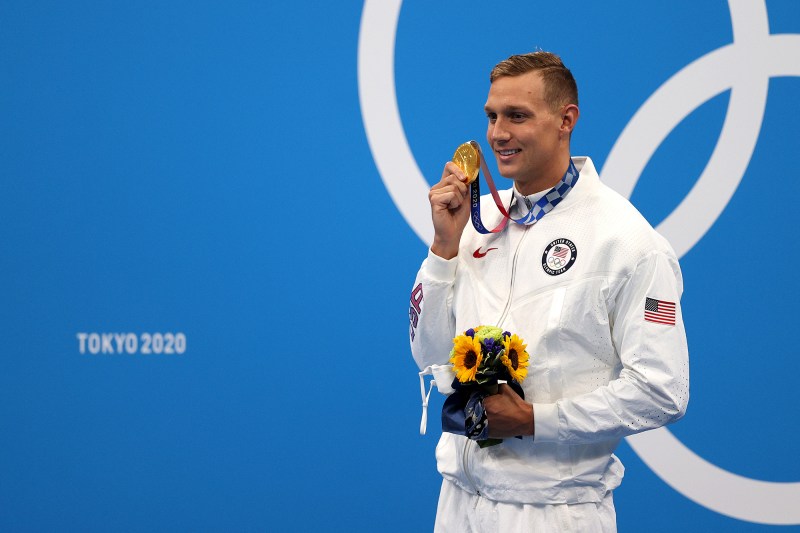
The peak of a swimming career is the Olympics, and few have done the Olympics better than Caeleb Dressel. One of the true breakout stars of the Tokyo Games, the 24-year-old Floridian’s success can be measured in both weight (five gold medals, to be exact) and time, including world records in the 100-meter fly and 4-by-100-meter medley relay and a .48-second winning margin in the 50-meter freestyle final, which is the largest for the event in Olympic history. But despite his intimate relationship with the clock, he tells The Manual he was never much of a watch person until luxury timepiece-maker Omega approached him regarding a partnership.
“I was blown away at the different styles, and the fact there is something that fits everyone’s different personality,” Dressel tells The Manual. “When I picked up my watch in Hawaii, I found the perfect fit for me. I know that Omega timepiece quality is at another standard.”
Related Guides
Omega watches, which have been made in Switzerland since 1848, are a perfect partner for Dressel. They, like him, are available covered in gold, and they have both speed and aquatic specialties. The company’s Speedmaster line, which comes from a racing pedigree, has a razor-sharp chronograph befitting a man whose sport is measured in hundredths of a second. (There’s also the fact that it was the make of choice for Buzz Aldrin as he walked on the moon, which is a kind of other-world record.) But then there’s the Seamaster line, a dive-centric collection which is rated to 500 feet under water.
So which does an amphibious Olympic champ with a need for speed choose? Well, a little of both.
“Right now, I’m wearing a Seamaster Diver 300M in gold and stainless steel,” Dressel says. Yeah, he knows all about its oceanic lineage (Omega has long sponsored sailing crews and races, and it’s the official timekeeper of the 2021 America’s Cup yacht race). But it’s the blending of both racing and dive lines that ultimately led to his selection: “It’s also a chronograph, so the design is all about precision timing,” he continues. “It’s everything I’d want in a watch.”

While Dressel isn’t hanging up his goggles yet — at the time of our conversation, he was already looking toward the International Swimming League’s third season, which takes place at Piscina Felice Scandone in Naples, Italy, from August 26 to September 30 — with the close of a near-perfect Olympics, including becoming the first man to win the fabled “Sprint Triple Crown” of 50-meter freestyle, 100-meter freestyle, and 100-meter fly, there’s a lot for which to be grateful. So we ask: To whom and with what would he offer his thanks for the support over his years of training?
It’s an easy answer: his wife, Meghan. And as far as watches? “You can’t go wrong with a Speedmaster Moonwatch,” he says. “It was the first watch ever worn on the moon, so in terms of marking a momentous occasion, it’s a pretty good one. It’s also a timeless design, so you can wear it forever. It’s just as good-looking as it was in 1969.”
But more than gifts and, yes, even the water, the first thing on Dressel’s mind is to return home to Florida and to spend the quality time with his wife that’s been in short supply over the past year-plus of focus on the Olympics. Even now, he remembers the raw emotion coursing through him as he watched her reaction after his 100-meter freestyle gold. “Meghan is a huge part of my success and her support really gives me strength in competition,” he says. “I’m looking forward to some time together, just the two of us, when we can finally enjoy our postponed honeymoon and talk about something other than swimming.”
There are mistakes he made, including, strangely enough, during his world-record 100-meter fly race. “The turn and finish [were] pretty bad,” he says. And the U.S.’s disastrous strategy in the 4-by-100-meter mixed medley relay, in which a slow third leg saw him diving in eight seconds behind the leader — an insurmountable gap, even for him, which ultimately ended his bid to join the rarified air of Michael Phelps, Mark Spitz, and Kristin Otto in winning six golds in a single Olympics — elicited his rare public criticism of U.S. coaches in the press. But Dressel looks back on his Olympic experience like facets on a diamond, with individual moments sparkling with light. Some of the brightest, he says, happened far from the pool, including the American pre-camp, and while he offers precious few details, he says it was where a country’s swimmers transitioned from individuals to bind together as a team.

But overall, Dressel doesn’t describe the nine days of competition as anything more than torture, albeit a torture he was ready to endure. “It [was] a week of hell,” he says. “You don’t sleep or eat right. You need to somehow stay in the moment, but also relieve some of that pressure. Physically, you just stay calm and trust your body.”
At home, the relief, the accomplishment sinks in. The pressure, as present as a phantom limb, recedes, and the scope of his accomplishments becomes more real. “Sprint races are over so quickly, so every little detail and movement matters. I felt like 24 years of my life was coming down to those few moments, so it was a big emotional release at the end,” he says. “Most of all, it feels like all the hard work and sacrifice was worth it.”
Famous for keeping a journal of his Tokyo experience, Dressel’s equally famous for saying that he has one entry left, after he’s had time to reflect. “Journaling [was] a way for me to reflect on my performance, to praise myself for the good, to reflect on ways to get better, and, then, to close the chapter and move on to the next thing.”
When the time comes, he’ll be ready, but for now, he waits. His biggest lesson from Tokyo? “I learned to take it one race at a time.”



